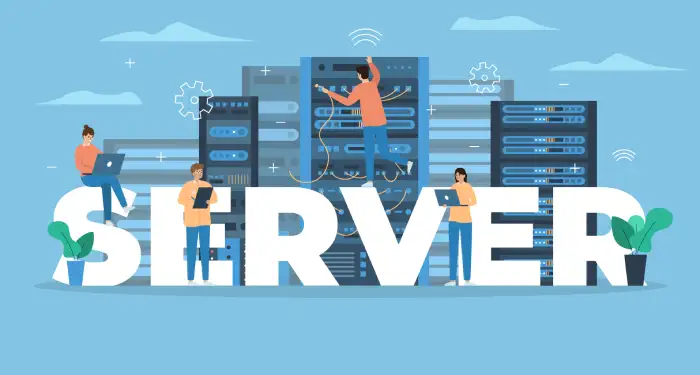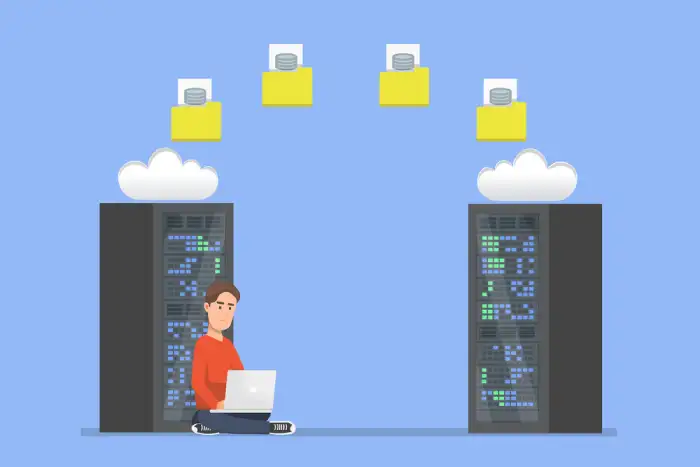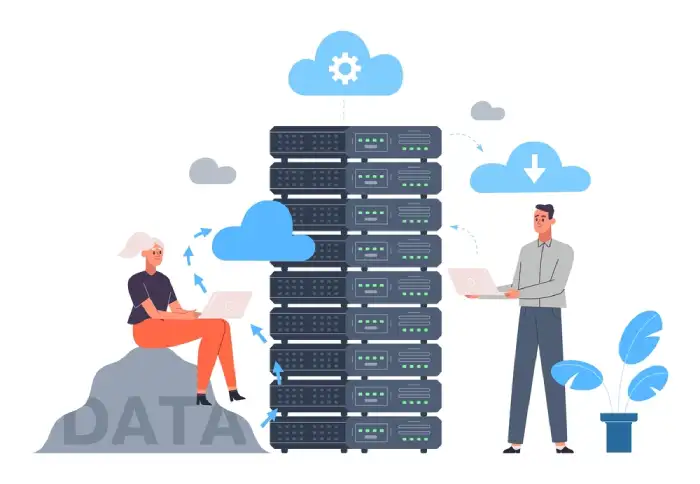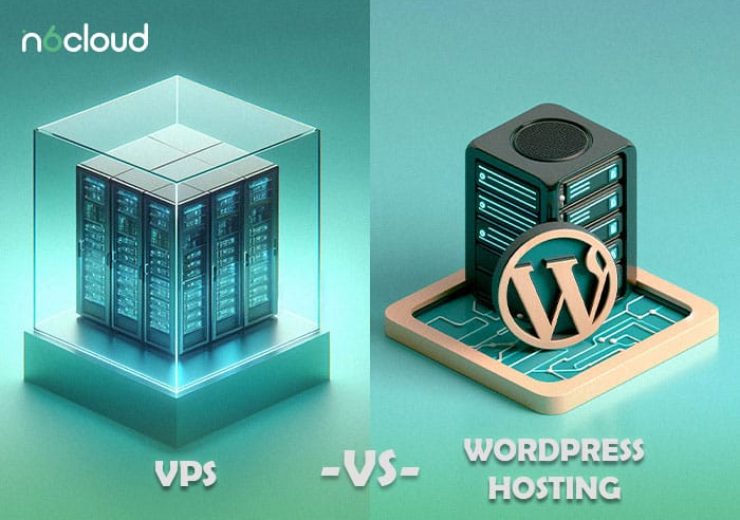What is the Difference Between a Server and a Host?

Table of Contents
Server and host are two common terms that we often hear out there as of now. However, some people need clarification when determining the difference between a server and a host.
What’s the difference between a server and a host? Continue to read this article, and we will be able to help you with uncovering all information.
What is the server?
In simple terms, a server is a computer system or a program that provides resources or services to other computers or programs over a network.
In other words, a server is a central computer that manages and shares resources such as files, data, and applications with other devices connected to it over a network.
Servers can be of different types, depending on the services they provide. Some common types of servers include web servers, email servers, file servers, game servers, and database servers. Each of these servers has a specific function, and they work in the background, providing services to clients that request them.
Other servers are a little expensive, but you can do everything with Canadian dedicated servers at high speed and without problems.
For example, a web server provides web pages to clients that request them through a web browser. An email server stores and manages email messages and facilitates user exchange. Similarly, a file server stores and manages files, enabling clients to access and share them.
Servers are designed to be highly reliable and available, ensuring that clients can always access the resources they need. They are also highly scalable, allowing additional resources and services to be added as the demand grows.

What is the host?
On the other hand, a host is a device or computer system that connects to a network and uses the services a server provides.
In other words, a host is any device that accesses and uses resources or services from a server over a network. A host can be a desktop computer, a laptop, a tablet, a smartphone, or any other device that can connect to a network.
Depending on the context, a host can be a client or a server. For example, a computer that accesses files from a file server is a client or a host that uses the services of the file server.
However, a computer that provides services to other devices on the network, such as a printer or a web server, is a server or a host that offers services to other devices.
If you want to see our Canadian WordPress Hosting plans, click here.

What’s the difference between a host and a server?
Now you have a basic idea about the difference between host and server. Let’s deep dive and figure out what’s the difference between a server and a host.
- Function
The primary function of a host is to use resources or services provided by a server. On the other hand, the primary function of a server is to provide services or resources to other devices on the network.
- Role
A host is a client that connects to a network and uses services a server provides. It initiates communication with the server and requests the services or resources it needs.
On the other hand, a server is a central computer that provides services or resources to other devices on the network. It manages and controls the network’s resources and services and responds to client requests.
- Scalability
A server is highly scalable, allowing it to simultaneously handle multiple requests from different devices. It can be expanded by adding more hardware resources, such as CPU, RAM, and storage, to meet the growing demand. In contrast, a host is not scalable in the same way. Depending on its hardware resources, it can only handle a limited number of requests at a time.
- Reliability
A server is designed to be highly reliable and available, ensuring clients can always access the necessary services or resources. It is often set up with redundant hardware and backup systems to ensure that it continues functioning even in the event of hardware failure or other issues.
A host, on the other hand, may not be as reliable or available as a server. It can be affected by hardware failures or network issues, causing it to be unavailable or slow.

- Resources
A server typically has more resources than a host, such as processing power, memory, and storage. This is because servers are designed to handle multiple client requests simultaneously, requiring more resources to meet the demand.
In contrast, a host only needs enough resources to support its needs and any services or applications it uses. Depending on your needs, you can get more resources on the server.
- Operating System
Servers often use specialized operating systems designed for specific purposes, such as Windows Server, Linux, or Unix.
These operating systems are optimized for server use and include server-grade hardware support, scalability, and security.
In contrast, hosts typically use consumer-grade operating systems, such as Windows or MacOS, designed for individual users rather than servers.
- Maintenance
Servers require more maintenance and administration than hosts. This is because they are responsible for managing and providing services to other devices on the network, making them critical to the network’s operation.
Server maintenance tasks include installing software updates, backing up data, and configuring security settings.
In contrast, hosts require less maintenance, as they only need to support their needs and any services they use. When understanding the difference between host and server, you must pay special attention to the maintenance requirements.
Conclusion
As you went through the article, you now have a clear idea about the difference between a server and a host. The host will be the client connecting to a network and using the server’s services. While keeping the facts in mind, you can work with a networked computer system.





